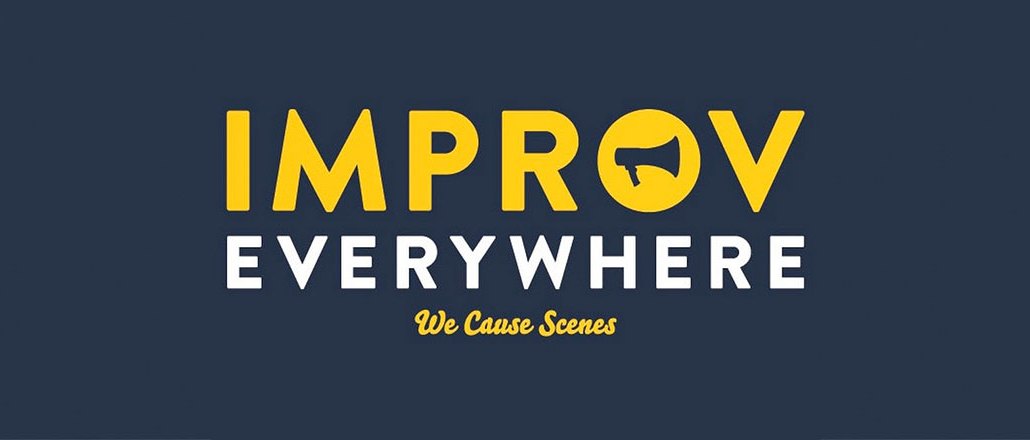Secure your place at the Digiday Publishing Summit in Vail, March 23-25

Charlie Todd is completely comfortable wearing his underwear on the subway or walking into a Best Buy dressed like one of their employees. That’s because he’s usually accompanied by hundreds of others when he pulls off one of his stunts. As the visionary founder of Improv Everywhere, Todd’s been cooking up hilariously massive public scenes for more than 14 years.
And because stunts like his annual “No Pants Subway Ride” — in which volunteers prank their fellow commuters by riding the rails in their skivvies — have become globally viral phenomenon, brands routinely come knocking.
“Improv Everywhere is very selective about the brands we work with, and the projects have to be a good fit,” Todd told Digiday. “It’s usually something we already wanted to do, and a brand is able to enhance it. By bringing in a budget we’re able to do something that’s above and beyond what we’d normally do.”
Todd said he’ll often pass on working with brands that want their logo or product overtly prominent during the event. “The majority of them end up not being fits because someone wants to make a commercial,” he said. But the group has worked with Target, ESPN, and Fandango on content in the past.
When it’s successful — as with the “Epic Christmas Carolling,” in which Improv Everywhere surprised a “random family” with a 20-person brass orchestra and a 13-member choir, sponsored by Target — the brand doesn’t influence the content at all. But in this case, Target benefited from a slew of positive media mentions once the resulting video spread online.
But what you didn’t see in the video was any kind of Target logo or mascot. That’s because The Improv Everywhere audience and participants, said Todd, would be “immediately turned off by a product placement shot that is obviously shoehorned into a video. The best brands are the ones just want to create something that’s great.”
More in Marketing

WTF is Meta’s Manus tool?
Meta added a new agentic AI tool to its Ads Manager in February. Buyers have been cautiously probing its potential use cases.

Agencies grapple with economics of a new marketing currency: the AI token
Token costs pose questions for under-pressure agency pricing models. Are they a line item, a cost center — or an opportunity?

From Boll & Branch to Bogg, brands battle a surge of AI-driven return fraud
Retailers say fraudsters are increasingly using AI tools to generate fake damage photos, receipts and documentation to claim refunds.





